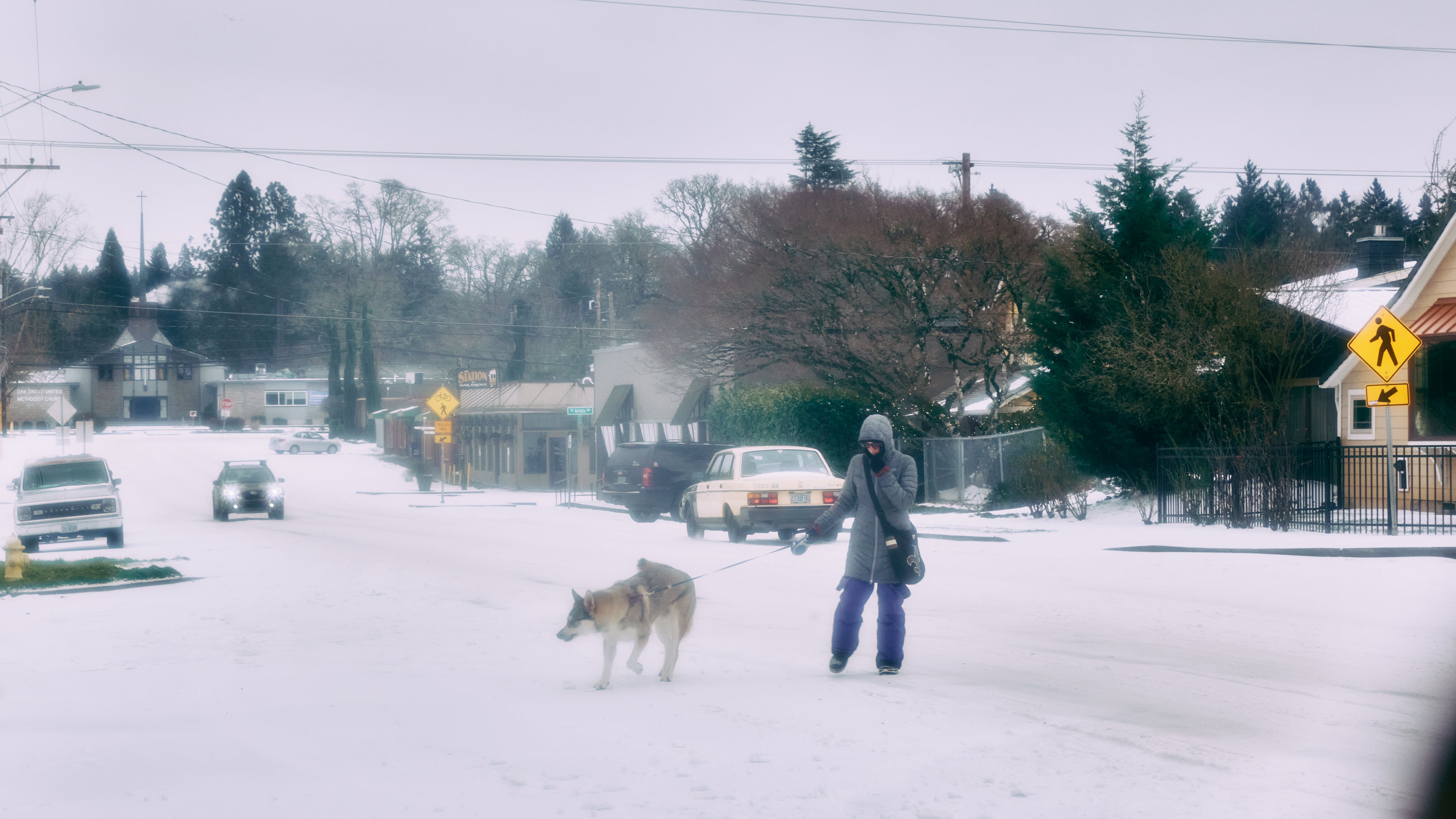The quarter-inch of ice that varnished Portland on Tuesday evening stubbornly refused to melt today, raising public safety questions in a city where at least 10 people have died in incidents linked to a deep freeze.
Multnomah County officials announced that shelter demand Tuesday night was the highest one-night total in local history—1,269 stayed at one of a dozen warming shelters—but then said the county would not open shelters Wednesday evening because conditions no longer met the threshold of a weather emergency.
“Emergency shelters closed today around noon,” said county spokeswoman Julia Comnes in an email responding to WW’s questions. “The weather conditions no longer reach the severe weather thresholds that Multnomah County officials use—in consultation with Emergency Management, Health Department, County Human Services, Joint Office of Homeless Services and National Weather Service experts—to decide on shelter plans as needed.”
When asked by WW whether county officials feared the decision would jeopardize the safety of people sleeping outdoors, Comnes said the county hands out “tents, sleeping bags, TriMet passes, dry clothes and shoes, along with information and resources about other shelter options and warm spaces” to people leaving the cold-weather shelters.
“In addition to the severe-weather beds that open only when weather thresholds are met,” she added, “the Joint Office, Multnomah County and the city of Portland also support more than 2,500 shelter beds that are open every night this winter, no matter the forecast.”
Comnes later added that county officials made the decision to close the emergency shelters when the forecast called for warmer temperatures than materialized. “Once the decision is made, there are many things in motion making it extremely difficult to try to switch back,” she said. “We would not have had adequate staffing today if we had tried to remain open.”
The county’s threshold for opening severe weather shelters is when the temperature falls to 25 degrees or 32 degrees with an inch of rain, or there’s an inch of snow. At sundown Wednesday, the temperature in Portland was 34 degrees.
But the city is still frozen. A veneer of ice, as thick as four-tenths of an inch, covers most outdoor surfaces after a night of freezing rain. Local meteorologists said they were surprised it didn’t melt Wednesday, as they had forecast. But highs hovered just above freezing, rather than cresting in the 40s as had been forecast.
“It played out yesterday pretty much as expected,” said Chris Burling, a meteorologist with the National Weather Service’s Portland office. “We just didn’t warm up in the Portland area as fast as anticipated. It looks a little bit slower in some areas than we were hoping for.”
Burling said the culprit was an east wind out of the Columbia River Gorge, blowing air into town from colder regions in the Cascades. He said the Gorge winds functioned much like a freezer door left open in a house. “When we have continued flow though the Gorge like that,” he said, “it just keeps Portland cold.”
Burling also raised the possibility—a coin flip, he said—that more freezing rain would arrive on Portland’s eastern edges Thursday evening.
The slow melt creates an uncertain end to a winter storm that now ranks among Portland’s deadliest. At least 10 people have died in incidents that authorities believe are linked to cold: four from suspected hypothermia, two from trees crashing into their domiciles, and two in a church fire believed to be started by a generator during a power outage.
That toll rose Wednesday in a horrifying incident in Northeast Portland where a live power line landed on the roof of an SUV. When three people exited the car, they were electrocuted by the live electrical current in the ice. An infant in the car survived.
“The individuals affected were occupants of the SUV and exited the vehicle following the branch bringing the live power line down upon their vehicle,” Portland Fire & Rescue wrote. “When the feet of the individuals touched the ground, and their bodies were touching the car they became part of the active electrical circuit which resulted in their deaths.”

